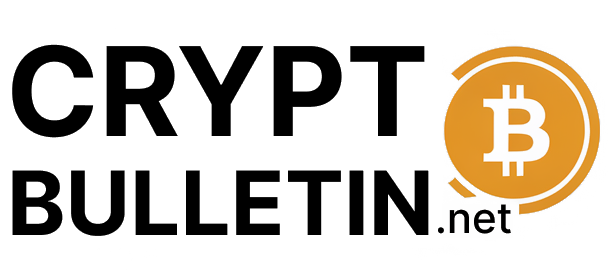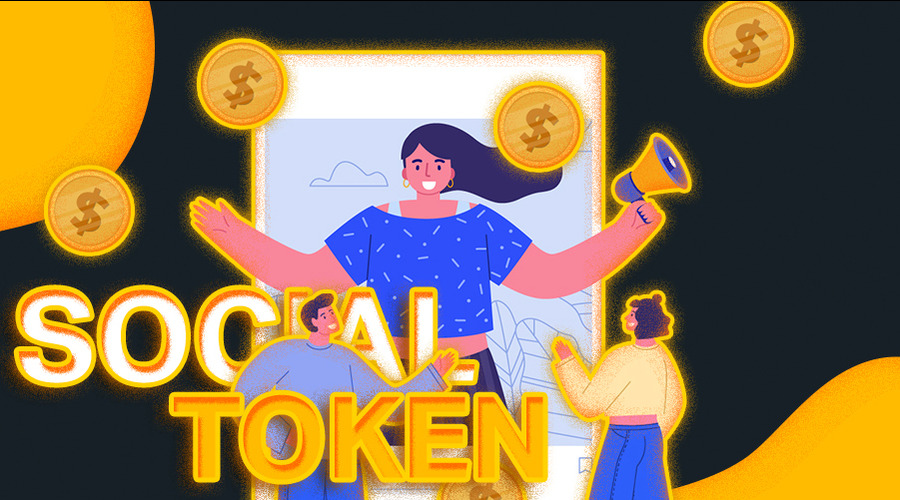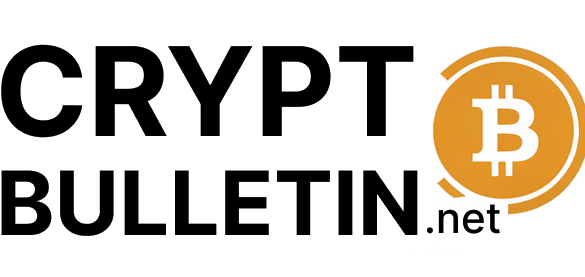In the digital age, the way we interact, engage, and transact has been undergoing constant evolution. One fascinating development that has gained significant traction is the rise of social tokens. Social tokens are a novel concept that has the potential to revolutionize community engagement, empower creators, and reshape the relationship between individuals and their audiences. In this article, we will explore the rise of social tokens and how they play a crucial role in engaging communities.
What are Social Tokens?
Social tokens are a form of cryptocurrency that represents an individual or community’s influence, reputation, or access to specific benefits. These tokens are built on blockchain technology, offering a decentralized and transparent way to create, manage, and exchange value within a community. Social token enable creators, artists, influencers, and communities to establish a unique digital asset that can be utilized for various purposes.
The Rise of Social Tokens
Over the past few years, social token have witnessed a rapid surge in popularity. This rise can be attributed to several factors. Firstly, social token provide creators with a direct connection to their audience, allowing them to monetize their content and build stronger relationships. Secondly, the decentralized nature of social token eliminates intermediaries, giving creators more control and ownership over their intellectual property. Lastly, the rise of blockchain technology has facilitated the creation and distribution of social token, making it more accessible to a wider audience.
How Social Tokens Engage Communities
Social token offer an array of mechanisms to engage and incentivize communities. One primary way social token achieve this is through token holders’ governance rights, enabling them to participate in decision-making processes within the community. Token holders can vote on various matters, such as project developments, content curation, and community initiatives. This democratic approach empowers community members, fosters a sense of belonging, and encourages active engagement.
Furthermore, social token can be utilized to unlock exclusive content, access to events, merchandise, or other benefits within the community. By providing unique perks to token holders, creators can establish a sense of exclusivity and reward their most loyal supporters. This creates a deeper connection between creators and their audience, enhancing community engagement and loyalty.
Benefits of Social Tokens
- Direct monetization for creators: they provide creators with a direct and decentralized way to monetize their content. By issuing tokens, creators can offer exclusive access to their work, merchandise, events, or other perks to token holders. This enables creators to bypass traditional intermediaries, such as advertising networks or content platforms, and establish a more sustainable and independent revenue stream.
- Enhanced community engagement: Social tokens foster a deeper sense of community and engagement. Token holders become active participants in decision-making processes, such as content curation, project developments, or community initiatives. This participatory approach empowers community members, fosters a sense of ownership, and strengthens the bond between creators and their audience.
- Incentives for audience loyalty: They create incentives for audience loyalty and support. By offering unique benefits and rewards to token holders, creators can recognize and appreciate their most dedicated supporters. This sense of exclusivity and recognition encourages ongoing engagement, strengthens the relationship between creators and their audience, and cultivates a passionate and committed community.
- Shared success and financial opportunities: It can provide financial opportunities for both creators and token holders. As the value of a creator’s token increases, early supporters and token holders can benefit from the creator’s growth and success. This shared success creates a mutually beneficial ecosystem, where creators and their audience have aligned interests and incentives.
- Community-driven decision-making: It facilitates democratic decision-making within communities. Token holders often have governance rights, enabling them to vote on various matters that impact the community. This approach ensures that decisions are made collectively, taking into account the preferences and opinions of the community members. It fosters a sense of inclusivity, transparency, and shared responsibility.
- Access to exclusive content and experiences: This grant token holders access to exclusive content, events, experiences, or merchandise. Creators can offer premium content or organize meetups, workshops, or virtual hangouts exclusively for token holders. This creates a sense of exclusivity and provides added value to the community, incentivizing token ownership and deepening the relationship between creators and their audience.
Challenges and Risks of Social Tokens

- Market Volatility: One significant challenge is the inherent volatility of cryptocurrency markets. The value of social tokens can experience rapid fluctuations, which can impact the perceived value of rewards, benefits, or even the overall sustainability of the token ecosystem. This volatility introduces uncertainty and can affect participants’ confidence and engagement within the community.
- Regulatory Environment: The regulatory landscape surrounding social token is still evolving and can vary across jurisdictions. Creators must navigate legal and compliance considerations when creating and managing their tokens. Failure to comply with relevant regulations can result in legal consequences and negatively impact the project’s reputation and viability.
- Scams and Fraudulent Activities: As social token gain popularity, the risk of scams and fraudulent activities also increases. Participants should exercise caution and conduct thorough research before investing in or engaging with new social tokens. It is essential to verify the legitimacy of the project, assess the credibility of the team, and be wary of promises that seem too good to be true.
- Liquidity and Exchange Listings: The liquidity of social tokens can vary, depending on factors such as demand, trading volume, and exchange listings. Not all social tokens are listed on cryptocurrency exchanges, and those that are may face challenges in maintaining liquidity and attracting trading activity. Limited liquidity can make it difficult for token holders to buy or sell tokens at desired prices.
- Community Management and Governance: Managing a thriving community around a social token requires time, effort, and effective governance. Engaging participants, addressing concerns, and ensuring transparent decision-making processes can be challenging, especially as the community grows. Effective community management and governance structures are essential to maintaining a healthy and vibrant ecosystem.
Examples of Successful Social Tokens
Several notable social tokens have emerged and gained traction in recent years. One example is the “RAC” token, created by musician and producer André Allen Anjos, also known as RAC. The RAC token grants its holders access to exclusive content, discounts on merchandise, and even the ability to collaborate on future projects. Another example is the “FWB” token, which stands for “Friends With Benefits.” This social token offers its holders exclusive access to events, virtual hangouts, and networking opportunities within the community.
How to Create and Distribute Social Tokens
Creating and distributing social tokens involves several steps. Firstly, creators need to determine the purpose and utility of their token, considering factors such as governance rights, access to content, or perks. Next, creators can utilize blockchain platforms like Ethereum to issue their tokens. Smart contracts are employed to establish the rules, distribution mechanisms, and token economics.
Once the token is created, creators need to engage their community, raise awareness, and build a strong network of supporters. Platforms and communities dedicated to social tokens, such as Discord or Telegram groups, can be utilized to connect with potential token holders. Creators should also consider collaborating with influencers or conducting a token sale to generate initial interest and support.
The Future of Social Tokens
The future of social tokens appears promising. As blockchain technology becomes more mainstream and accessible, the adoption of social tokens is expected to increase. Social tokens have the potential to transform how communities interact, engage, and reward creators. With continued innovation and adoption, we can expect to see social tokens play a more significant role in the digital landscape, empowering creators and fostering vibrant communities.
Conclusion
Social tokens have emerged as a powerful tool for creators and communities to engage, incentivize, and reward their audience. By leveraging blockchain technology, social tokens enable creators to establish deeper connections, monetize their content directly, and foster active community participation. While challenges and risks exist, the potential benefits and opportunities offered by social tokens are significant. As the world becomes more interconnected and digital communities continue to thrive, social tokens are poised to shape the future of engagement and community building.
FAQs
Q1: How do social tokens differ from traditional cryptocurrencies like Bitcoin?
Social tokens differ from traditional cryptocurrencies like Bitcoin as they are typically designed to represent the influence, reputation, or access to specific benefits within a community. They are often created by individuals or communities and serve as a mechanism to engage and incentivize their audience.
Q2: Are social tokens only used by creators and artists?
No, these are not limited to creators and artists. While they are popular among creators, influencers, and musicians, social tokens can be utilized by any individual or community seeking to establish deeper connections and engage their audience.
Q3: Can social tokens be traded on cryptocurrency exchanges?
Yes, They can be traded on cryptocurrency exchanges, provided they meet the listing criteria of the respective exchange. However, not all social tokens are listed on exchanges, and their liquidity may vary depending on the token’s popularity and demand.
Q4: What are some potential risks associated with investing in social tokens?
Investing in social token carries risks, including the volatility of cryptocurrency markets and potential scams or fraudulent activities. It is essential for individuals to conduct thorough research, exercise caution, and be aware of the potential risks before investing in any social token.
Q5: How can I get started with social tokens?
If you are interested in social tokens, you can start by researching existing projects and communities in the social token space. Joining relevant online communities, engaging with creators, and learning from their experiences can provide valuable insights. Additionally, exploring blockchain platforms and resources dedicated to social tokens can help you understand the process of creating and distributing your own token.


